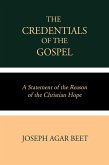Two chief subjects are here discussed: the Second Coming of Christ, and the Future Punishment of Sin.
Of these topics, the former has been discredited by attempts to read into the unfulfilled prophecies of Holy Scripture predictions of modern history. Undeterred by the failures of earlier interpreters, successive writers have attempted to delineate the course of events in the future; pushing the dates further and further forward as earlier anticipations have been disproved. The failure and manifest folly of these attempts have led many thoughtful people to turn away from the whole subject of unfulfilled prophecy as having no bearing on the practical life of to-day. Even the plainly foretold return of Christ to judge the world, which occupies so large a place in the New Testament, has been in great measure overlooked. To others, this oversight has given to the subject undue importance.
The practical use of the future punishment of sin as a means of moral suasion has made it in all ages a favourite topic in the pulpit. And popular preachers have used a free hand in delineating the sufferings of the lost. But, in modern times a quickened moral sense has revolted against the heartless and awful pictures in which some preachers have indulged. The analogy of righteous human government has taught them that divine punishment must be in harmony with the proportion and fitness of things. This revolt against the rhetoric of the pulpit has demanded and compelled a reconsideration of the whole subject.
This reconsideration has suggested, in opposition to the popular theory of the endless torment of the lost, other milder theories of the future punishment of sin. And the advocates of these theories have claimed for them, with more or less confidence, the authority of the New Testament.
In this volume I have endeavoured to reproduce, impartially and fully, the teaching of the New Testament on both departments of the subject before us. In so doing, I have dealt with each writer separately, endeavouring to comprehend his teaching as a whole and as distinguished from that of other sacred writers. I have then put together these various types of teaching and looked at them as a whole. This method enables us to see in theological perspective the doctrines before us, to estimate their proportionate place in the New Testament and in the Gospel of Christ and the amount and decisiveness of the evidence on which they rest.
The result of our inquiry is a definite and harmonious general doctrine of the Second Coming of Christ resting securely on the testimony of various sacred writers. Along with this general doctrine, which we may accept with confidence, we find in one passage of the Book of Revelation teaching not easy to harmonise with it; and we find here and there in the New Testament indications of an expectation of an early return of Christ not justified by the event. Various theories ancient and modern of the Future Punishment of Sin have been found to contradict or to go beyond the teaching of the New Testament. But we have found underlying the teaching of all the writers of the New Testament, and have been able to formulate, a doctrine which claims the reverent approval of the moral sense of man, is in harmony with all we know about sin and about God, and is a powerful deterrent from sin.
WESLEYAN COLLEGE, RICHMOND,
13th September, 1897.
CrossReach Publications
Dieser Download kann aus rechtlichen Gründen nur mit Rechnungsadresse in A, B, BG, CY, CZ, D, DK, EW, E, FIN, F, GR, H, IRL, I, LT, L, LR, M, NL, PL, P, R, S, SLO, SK ausgeliefert werden.
Hinweis: Dieser Artikel kann nur an eine deutsche Lieferadresse ausgeliefert werden.









